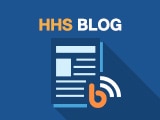202-690-6343
[email protected]
Letter to U.S. Governors from HHS Secretary Xavier Becerra on COVID-19, Flu, and RSV Resources
December 2, 2022
Dear Governor,
As we have all reported, parts of the country are currently experiencing a confluence of respiratory illnesses, including COVID-19, Influenza (flu), and Respiratory Syncytial Virus (RSV), especially among children, and this challenge is increasing strain on our health care and hospital systems. I write today to reinforce that the Biden-Harris Administration stands ready to continue assisting you with resources, supplies, and personnel, as it has throughout our fight against COVID-19.
As we head into the winter months, let me reiterate that there are resources and tools available to you and your team to strengthen your capacity to respond to RSV and other infectious diseases, including flexibilities that have been in place during the COVID-19 Public Health Emergency (PHE). As your federal partner, we stand ready to evaluate any request for federal medical assistance and support – including requests for medical personnel and equipment – working in close coordination with you and local jurisdictions to determine the needs and availability of matching resources.
Of note, the Administration has exercised regulatory flexibilities to help health care providers and suppliers continue to respond to COVID-19. These flexibilities – while critical in addressing the COVID-19 pandemic – can also help address many of the challenges you face during the spread of non-COVID-19 illnesses, including RSV and flu. They remain available to you and health care providers as you all make care available in response to flu, RSV, COVID-19, and other illnesses.
Additional resources are available as well, including nearly $400 million in funding from the Centers for Disease Control and Prevention (CDC) to prepare for and respond to public health threats each year, including flu and other respiratory diseases such as RSV. We also continue to provide information on symptoms and care for RSV, flu, and COVID-19, ways to prevent these illnesses, and updates on ongoing research and epidemiology to help inform what is happening in your state. In addition, we have taken action to monitor the supply chain for critical drugs and devices, working closely with manufacturers and other groups in the supply chain and leveraging all the available tools to ensure adequate availability.
In addition to these resources and tools, over the past month, we have engaged with your office through a meeting hosted by the National Governors Association with CDC Director Rochelle Walensky, Assistant Secretary for Preparedness and Response Dawn O’Connell, and subsequent calls with Assistant Secretary for Health Admiral Rachel Levine to share the latest information on RSV and available resources at the Department of Health and Human Services (HHS).
You and your resilient public health officials play a tremendous role in keeping our nation healthy. Thank you for your hard work and dedication as we continue to work together to respond to RSV, flu, COVID-19, and other respiratory illnesses. I look forward to hearing from you regarding how we can best help you and your local jurisdictions.
Secretary Xavier Becerra
Department of Health and Human Services
Current Flexibilities in Place and Available to be Utilized: The Administration has exercised regulatory flexibilities to help health care providers and suppliers continue to respond to COVID-19. These flexibilities – while critical in addressing the COVID-19 pandemic – can also help address many of the challenges brought on by the current confluence of COVID-19 with other respiratory and seasonal illnesses, including RSV and flu. These flexibilities remain available to you and your jurisdiction’s health care providers to address all of these illnesses. As a result of the COVID-19 PHE, the following flexibilities are available to states and health care systems:
- The Centers for Medicare & Medicaid Services (CMS) has issued blanket waivers that allow hospitals to screen or triage patients off site; provide care in temporary expansion sites to boost surge capacity; and more easily transfer patients between facilities. Providers have asked for these flexibilities to help prevent the spread of infection in crowded areas and more efficiently provide safe care in the most appropriate settings available. These flexibilities remain available to address emerging concerns, including the spread of RSV and flu, when a provider determines that – as a result of the ongoing impacts of the COVID-19 emergency – standard regulatory requirements could not otherwise be met. For example, if nationwide staffing shortages that have been exacerbated by the COVID-19 pandemic would cause a facility to be unable to meet a standard regulatory requirement, a provider may avail themselves of the blanket waiver, even if the primary use of that waiver is to assist the provider in preventing the spread of other respiratory illnesses, such as RSV and flu. More information on these and other available flexibilities is available here.
- Additionally, we know there is an increased interest in the use of telehealth technologies to make sure families can get the care they need while minimizing their risk of infection. Medicaid agencies have had the authority to authorize health care services in Medicaid and the Children’s Health Insurance Program (CHIP) to be provided via telehealth for decades. CMS will continue to encourage Medicaid agencies to maximize telehealth flexibilities during and after the COVID-19 PHE, including by creating a dedicated website and toolkit to support states’ implementation of telehealth technologies.1
Surge Planning: The Administration for Strategic Preparedness and Response (ASPR) stands ready to evaluate any formal request for federal medical assistance – including requests for medical personnel – working in close coordination with the requesting state/jurisdiction to determine the needs and availability of matching resources. Resources that can be made available through formal requests include:
- Medical equipment and devices, such as ventilators and PPE through the Strategic National Stockpile (SNS);
- Supplies, including for testing supplies for RSV, COVID-19, and flu;
- Federal medical personnel such as from the National Disaster Medical System (NDMS) teams, or other contracted personnel; and
- United States Public Health Service Officers, who are medical personnel such as nurses and pharmacists.
I encourage you to communicate directly with ASPR regional staff to obtain additional information and communicate any requests.
ASPR also has technical resources available to all states and jurisdictions. These resources include strategies for bed coordination among facilities and regions, best practices for increased use of telehealth for triage to avoid unnecessary emergency room visits, surge response plan templates, and clinical guidance tools. ASPR stands ready to provide technical assistance and support for any health care facility or system that need it in their surge operations planning. As part of our ongoing outreach to health care systems and jurisdictions, HHS has hosted town halls across all ten HHS regions and has held regular office hours through our Office of Intergovernmental and External Affairs to share best practices and mitigation strategies. More information can be found here.
Financial Resources:The best course of prevention of respiratory illness this fall and winter continues to be widespread vaccination against the flu and COVID-19 – including ensuring eligible individuals have received an updated COVID-19 vaccine that increases protection against COVID-19 and targets the Omicron variant. Vaccination can alleviate strain on hospitals and prevent deaths. The federal government has provided significant funding through the American Rescue Plan and other COVID-19 relief packages that can be used to expand and promote vaccination. This support includes nearly $400 million in funding from CDC to states to prepare for and respond to public health threats each year, including flu and other respiratory diseases such as RSV. Other resources include the Preventive Health and Health Services Block Grant (PHHS). We encourage you to learn more about the range of state-based resources here: Grant Funding Profiles - CDC.
Trend Data, Research, and Care: CDC provides information on symptoms and care for RSV, ways to prevent RSV, and information about ongoing research and epidemiology that may be useful to understanding what is happening in your state. At RSV References and Resources | CDC, your team can also find targeted educational materials for people at high-risk for severe RSV infection and for health care providers.
Supply Chain Monitoring: The U.S. Food and Drug Administration (FDA), in coordination with others across HHS, is monitoring supplies of critical drugs and devices, working closely with manufacturers and other groups in the supply chain, and leveraging all the tools as its disposal to ensure adequate availability. We encourage you to reach out to the FDA’s Intergovernmental Affairs team ([email protected]) with questions or challenges on supply chains.
Endnotes
1 See https://www.medicaid.gov/medicaid/benefits/downloads/medicaid-chip-telehealth-toolkit.pdf and https://www.medicaid.gov/resources-for-states/coronavirus-disease-2019-covid-19/tools-and-checklists-for-states/index.html.
Like HHS on Facebook, follow HHS on Twitter @HHSgov, and sign up for HHS Email Updates.
Last revised:




